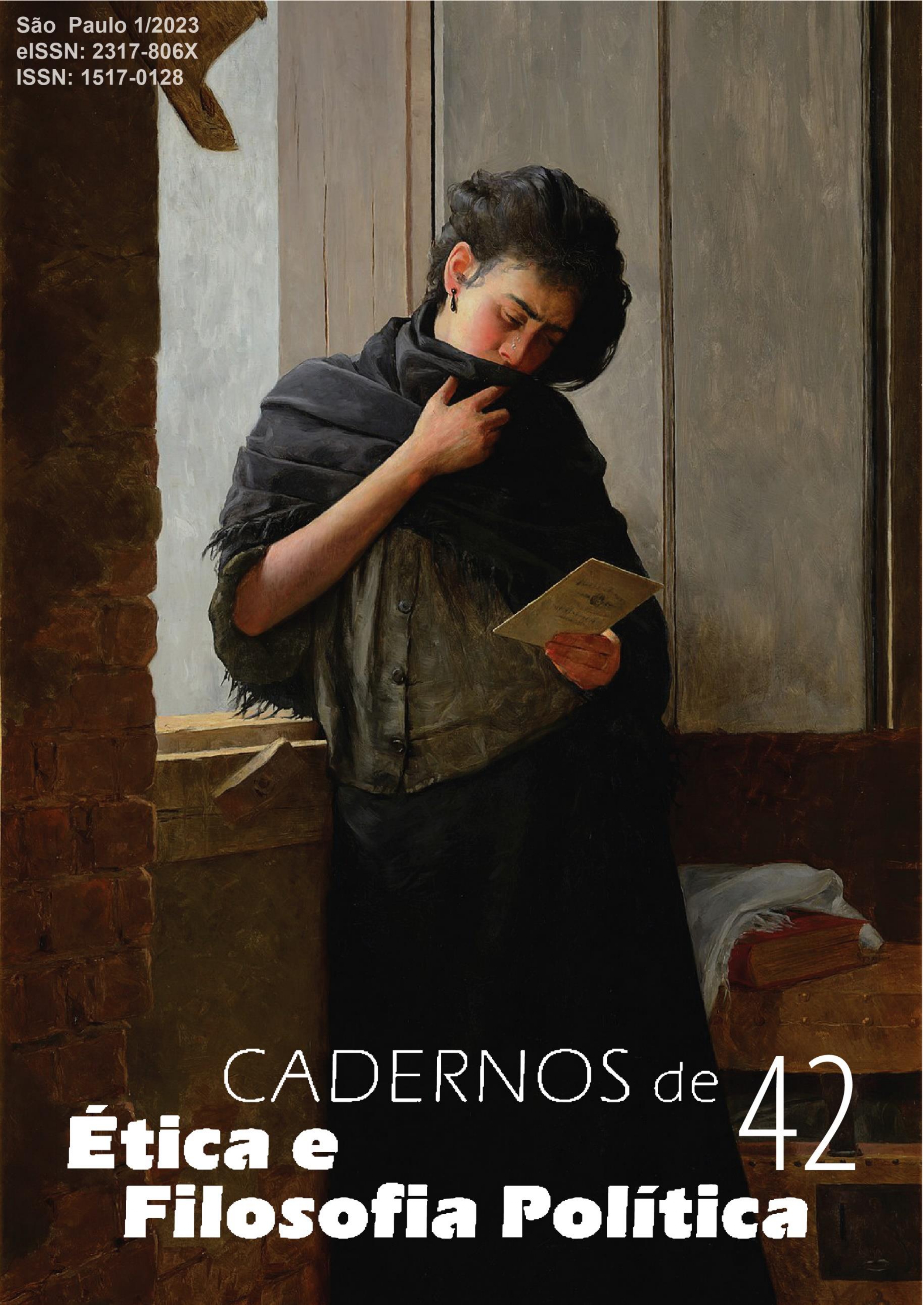The objection of the parfitian self in Rawls's political turn
DOI:
https://doi.org/10.11606/issn.1517-0128.v42i1p7-19Keywords:
Theory of Justice, Political Liberalism, Rawlsian Political Turn, Stability of JusticeAbstract
In this article, we deal with a challenge initially raised by Derek Parfit against Rawls’s theory of justice. This challenge, which will be fully explained later, concerns the problem of personal identity and how this might relate to the distributive principles of justice. We believe that this problem is worth of review, as indicated by Paul Weithman, it plays a crucial role on Rawls’s political turn. Weithman himself has already provided an accurate analysis of how that objection, which we refer as the objection of the Parfitian self from now on, undermined Rawls’s first attempt to show how his conception of justice would be stable. We believe, however, that it is easy to lose track of this debate, which was “mediated” by Samuel Scheffler. That is why we provide a chronological exposition of this debate in section 1. After that, in section 2, we restate Weithman’s account of how the Parfitian self undermines stability at Rawls’s A theory of Justice. Finally, in section 3, we examine whether this difficulty is properly dealt with in Political Liberalism. We hope that this approach might go along and be complementary to Weithman’s previous contributions.
Downloads
References
KORSGAARD, C. M. “Personal Identity and the Unity of Agency: A Kantian Response to Parfit.”. Philosophy & Public Affairs, p. 101-132, 1989.
PARFIT, D. “Later selves and moral principles”. Philosophy and Personal Relations: An Anglo-French study. Ed. by Alan Montefiore. London: Routledge and Kegan Paul, pp. 137-169, 1973.
RAWLS, J. “The Independence of Moral Theory”. Proceedings and Addresses of the American Philosophical Association, Vol. 48, pp. 5-22, 1975.
RAWLS, J. A Theory of Justice. Revised Edition. Harvard: Harvard University Press, 2005.
RAWLS, J. Political Liberalism. Nova York: Columbia University, 1993.
SCHEFFLER, S. “Moral independence and the original position”. Philosophical Studies: An International Journal for Philosophy in the Analytic Tradition, Vol. 35, n. 4, pp. 397-403, 1979.
WEITHMAN, P. Why Political Liberalism? On John Rawls’s Political Turn. Oxford: Oxford University, 2010.
Downloads
Published
Issue
Section
License
Copyright (c) 2023 Rafaela Fernandes Leite, Yago Condé Ubaldo de Carvalho

This work is licensed under a Creative Commons Attribution-ShareAlike 4.0 International License.


